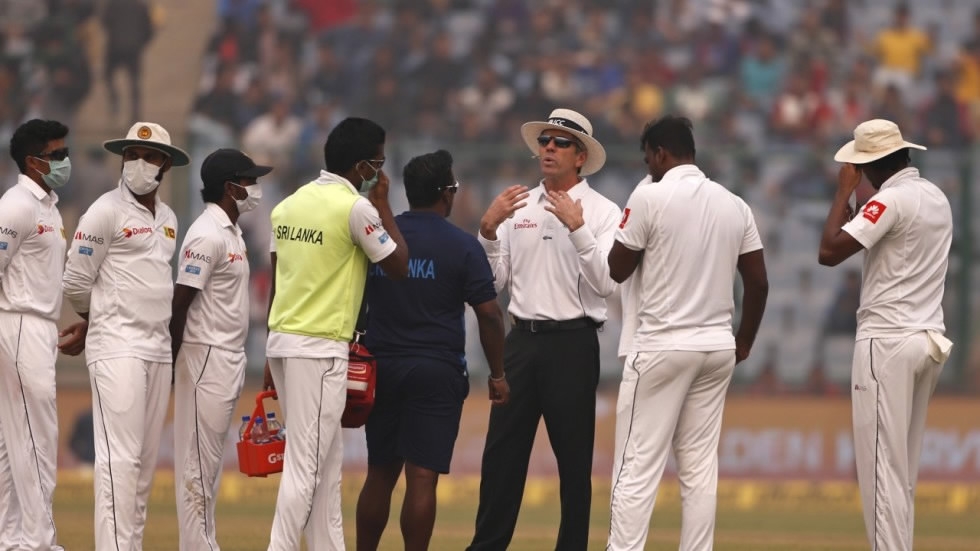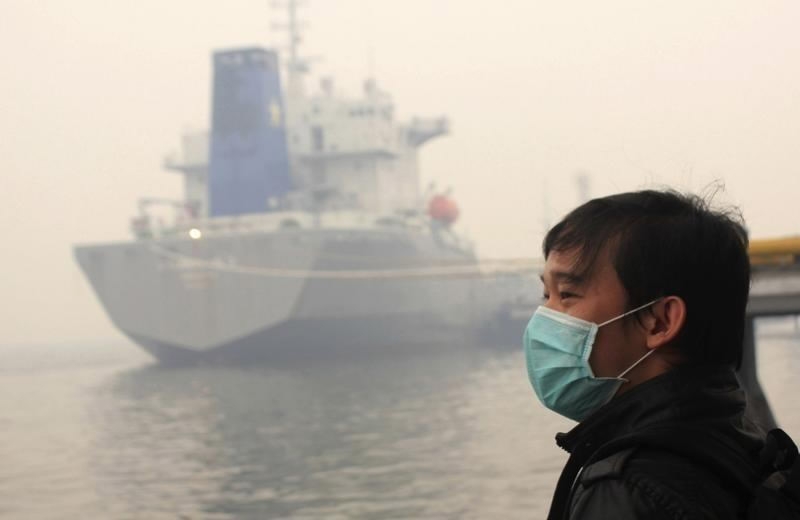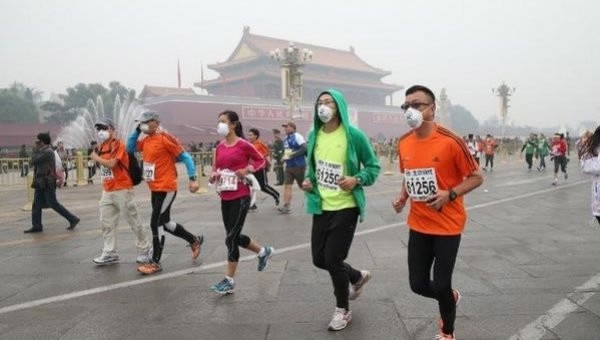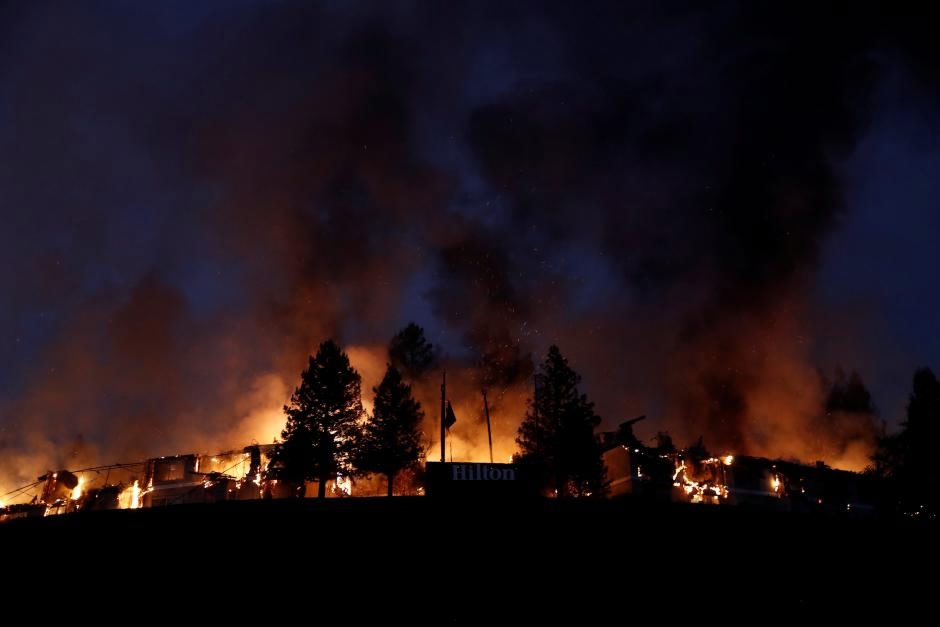
Tech & Sci
17:13, 05-Dec-2017
Air pollution: A make-or-break for sports events
Alok Gupta

From crop burning in India to wildfires in California or vehicular pollution in Jakarta, causes for worsening air quality may be many, but it is slowly becoming a new norm for deciding international- to school-level sports schedules.
A day after the Sri Lankan cricket players’ donned masks to battle severe air pollution during the third Test match in New Delhi, Board of Control for Cricket in India (BCCI) announced pollution level would be a deciding factor before fixing future match schedules.
“Pollution levels will be taken into consideration before allotting an international game to Delhi,” acting president of the BCCI, Amitabh Choudhary said.
The plight of Sri Lankan cricketers battling choking pollution at Feroz Shah Kotla Stadium also caught the attention of Pakistan’s cricketer-turned-politician Imran Khan.
Smoke from stubble burning in Indian states of Punjab, Rajasthan and Uttar Pradesh not only chokes Delhi but also Pakistan.
In a tweet, Khan said, "This should be a wake-up call for Pak. Our children are at a huge risk because of dangerous pollution levels. We must mobilize the entire nation and take steps to fight climate change and pollution."
Tournament director of the 2017 U-17 FIFA World Cup, Javier Ceppi criticized the BCCI for allowing cricket match in such a critical air pollution. In a tweet, he said, organizers avoid any sporting event from Diwali to February as it may be risky to athletes' health.

A passenger wearing a mask stands in a thick haze as he waits for his ferry heading to Malaysia, in Dumai port, Indonesian province of Riau, March 13, 2014. /Reuters Photo
A passenger wearing a mask stands in a thick haze as he waits for his ferry heading to Malaysia, in Dumai port, Indonesian province of Riau, March 13, 2014. /Reuters Photo
Jakarta nervous about rising air pollution might impact upcoming Asian Games, takes lessons from China
Similar uncertainty is looming in Jakarta, host of Asian Games from August 18 to September 2, next year. The poor air quality has forced authorities to learn lessons from China’s effort to reduce air pollution during Beijing Olympics in 2008.
“We are running against time to ensure ambient air quality before the Asian Games. Just like China, we are trying to control vehicular pollution to control particulate matter (PM) level,’ Ahmad Safrudin, executive director of the KPBB, a non-profit organization in Jakarta for clean air, told CGTN Digital.
“Jakarta is world third’s most polluted city.”
While Jakarta might be learning a lesson from China to clean air, Beijing itself was engulfed with critical air quality during the 34th Beijing International Marathon held on Oct. 19, 2014, participated by around 30,000 competitors, most of whom battled the heavily-polluted air wearing masks.

Oct. 19, 2014: Beijing marathon. /Reuters
Oct. 19, 2014: Beijing marathon. /Reuters
In the last two year, emerging economy in China and a battle against air pollution has led to a spurt in athletic events. According to the Chinese Athletic Association around 330 running events including marathons were held in the last fiscal witnessing participation of 2.8 million runners, nearly twice the number in 2015.
Runners at the Airtel half-marathon held in Delhi in November suffered the same ordeal in extreme smog. The even was held despite Indian Medical Association (IMA) issuing a stringent warning of adverse impact on runners when the air was extremely toxic.
Climate change and wildfires leading to cancellation of sports events in the US
However, climate change has further exacerbated air pollution. The raging wildfire, a prominent outcome of warming weather in California forced Virgin Sport to cancel inaugural Festival of Fitness in San Francisco on October 12 and 13.
The toxic fumes from the wildfires also threatened cancellation of Washington State Cougars and California Golden Bears game in October.
The match was held as per schedule drawing ire of the National Collegiate Athletic Association (NCAA). In a statement, they mentioned it’s not safe to play when the air quality index is more than 200.

Smoke and flame rise from the Hilton Sonoma Wine Country during the Tubbs Fire in Santa Rosa, California, US, October 9, 2017. /Reuters
Smoke and flame rise from the Hilton Sonoma Wine Country during the Tubbs Fire in Santa Rosa, California, US, October 9, 2017. /Reuters
The intense air pollution also forced NCAA to issue guidelines for sporting activity during air pollution. Authorities guide students and parents to monitor Air Quality Index before every outdoor sporting event.
“Schools should consider removing sensitive athletes from outdoor practice or competition venues at an AQI over 100. At AQIs of over 150, all athletes should be closely monitored. All athletes should be removed from outdoor practice or competition venues at AQIs of 200 or above,” NCAA advised.
According to recent researches one percent increase in the concentration of particulate matter (PM) 10 in the air leads to the 0.2 percent decrease in professional soccer players.
Experts warn PM2.5 that enters bloodstream and lungs is increasing at an alarming rate in the air and might prove lethal for athletes and sportsperson.

SITEMAP
Copyright © 2018 CGTN. Beijing ICP prepared NO.16065310-3
Copyright © 2018 CGTN. Beijing ICP prepared NO.16065310-3